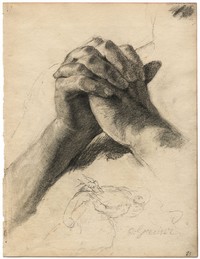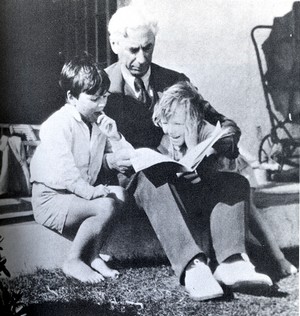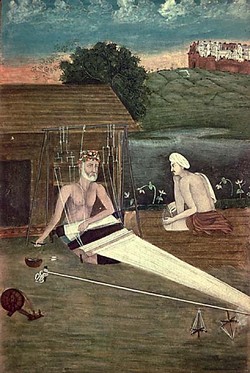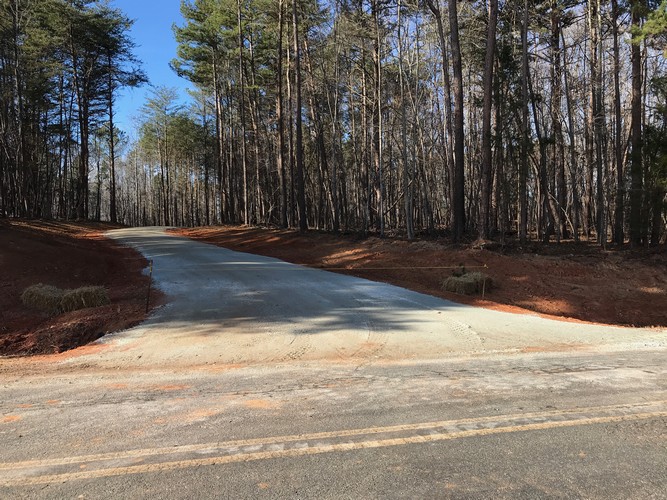TAT Forum
September 2019
Receive new-Forum notifications each month
Let your voice be heard
Enjoy the benefits of TAT membership
Become a TAT member
Help support TAT;
become a member today
|
As an Amazon Associate TAT earns from qualifying purchases made through links on our website. |

Convictions & Concerns
TAT members share their personal convictions and/or concerns
Navigating Our Spiritual Waters to the Greatest Treasure of All
In yonder days, seafaring treasure hunters gathered resources for the journey: a sturdy ship to navigate perilous waters, supplies for sustenance, fellow explorers who offered various skills, and tools to remain on course and steer clear of rocky shores—tools such as a compass, nautical charts, and maps of the stars.
As explorers in the spiritual world, we undertake a grand journey with the hope of finding the greatest treasure of all—one that fully satisfies our desire to know who we truly are. Like ancient mariners, we face perilous waters, but our rocky shores are of a different nature. Likewise, we must muster the appropriate tools to maintain our direction. So today, I'll talk about the art of navigation, and offer navigation tools to help seekers in their grand journey inward.
In June 2017, Andrew Newberg and Mark Waldman published a book titled How Enlightenment Changes Your Brain. My teacher, Richard Rose, often said that science will ultimately vindicate spiritual discoveries. Science will probably never resolve all the mysteries, but to me, this book helps explain what's happening in our brain as we follow a spiritual path, and it illustrates the major changes that permanently occur in the brain during deep insights and Enlightenment. It also helps explain why enormously diverse spiritual paths unleash insights about ourselves and can ultimately lead to Enlightenment.
While I don't like the word "Enlightenment" due to all the marketing hype in spiritual circles, I'll use the word today because it states a goal—a goal that is truly the treasure we are pursuing.
Of course, as soon as I say anything about Enlightenment, it makes the pursuit into something grandiose. In fact, I often use the term "Grand Maul Enlightenment" because until not too long ago, I had some far-fetched idea that I'd be flopping around on the floor when Enlightenment finally struck. These are the crazy ideas and imaginations we can develop as we pump ourselves with too much spiritual knowledge from books, websites, and teachers.
According to the book, we are biologically predisposed to Enlightenment. I maintain that everyone has what he or she needs to do this—no one is lacking or incapable. Enlightenment is available to all. In fact, Enlightenment may be hardwired into our brains. It's like a light bulb waiting for you to turn on the switch and energize it. There's an everyday awareness in all of us that is intrinsic and impossible not to have. When were you ever not aware?
But I don't think it's particularly helpful to sell or impose a specific brand of Enlightenment. Ironically, I find that highly opinionated teachers tend to be the most impactful. Teachers usually gravitate to techniques that worked for them. However, when teachers impose specific techniques or insist on using litmus tests for Enlightenment, they undercut the students' options for exploring what is most effective for them.
There's no doubt about it—Enlightenment is highly personalized. And this is what I like about TAT. We can see a myriad of approaches and even descriptions of Enlightenment among the teachers, which truly depersonalizes it. So attempting to limit yourself to a narrow approach or comparing yourself to others are generally bad ideas.
I'll say a few words about beliefs….
 See the complete essay.
See the complete essay.
*
~ Thanks to Paul Constant, a former student of Richard Rose and active TAT member. Presented at the November 2017 TAT Gathering, at the Claymont Society Mansion in Charles Town, WV. Paul maintains a cornucopia of resources for the sincere seeker at SearchWithin.org.

Would you like to share your impressions or questions with other TAT Forum readers? Please email your comments to the .


TAT Foundation News
It's all about "ladder work" – helping and being helped
|
Falling for Truth: A Spiritual Death and Awakening by Howdie Mickoski is now available in paperback and in Kindle e-book format. Explore Chapter 1.
|
April 5-7, 2019 (Claymont Great Barn)
June 14-16, 2019 (Claymont Great Barn)
August 16-18, 2019 (Claymont Mansion)
* November 1-3, 2019 (Claymont Mansion) *
 Join us for TAT's November 1-3, 2019 spiritual retreat. Details & registration coming soon.
Join us for TAT's November 1-3, 2019 spiritual retreat. Details & registration coming soon.
 The following video recordings of presentations from a previous April TAT meeting are available on YouTube:
The following video recordings of presentations from a previous April TAT meeting are available on YouTube:

 Richard Rose spent his life searching for the Truth, finding it, and teaching others to find their Way. Although not well known to the public, he touched the lives of thousands of spiritual seekers through his books and lectures and through personal contacts with local study groups that continue to work with his teachings today. Meet Richard Rose is a 34-minute audio recording of an audiovisual presentation by Michael Whitely at the August 2017 TAT meeting that explores the arc of Richard Rose's life as seeker, finder, family man, and teacher.
Richard Rose spent his life searching for the Truth, finding it, and teaching others to find their Way. Although not well known to the public, he touched the lives of thousands of spiritual seekers through his books and lectures and through personal contacts with local study groups that continue to work with his teachings today. Meet Richard Rose is a 34-minute audio recording of an audiovisual presentation by Michael Whitely at the August 2017 TAT meeting that explores the arc of Richard Rose's life as seeker, finder, family man, and teacher.
 Downloadable/rental versions of the Mister Rose video and of April TAT talks
Remembering Your True Desire (details).
Downloadable/rental versions of the Mister Rose video and of April TAT talks
Remembering Your True Desire (details).
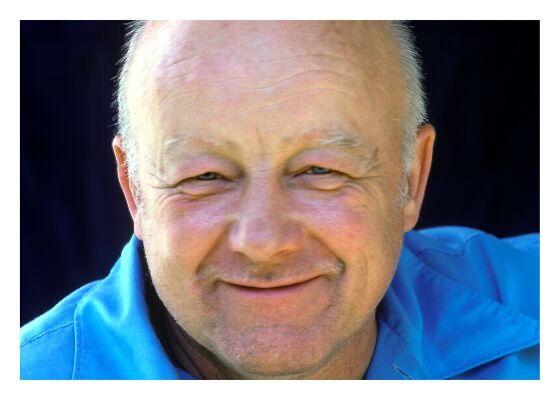
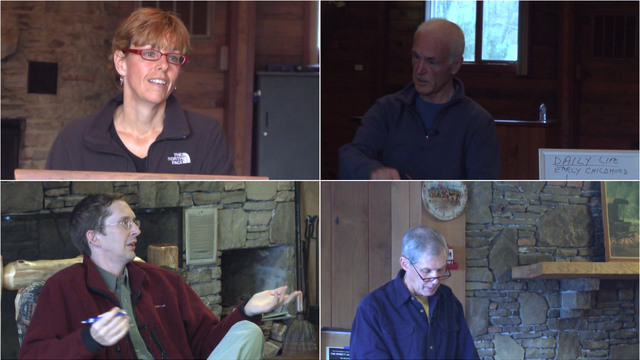
Local Group News
|
|

 Update from the Central New Jersey Group:
Update from the Central New Jersey Group:
The Central Jersey Self Inquiry Group has been meeting 2 times per month since our first meeting in early January this year. We have been averaging 5 participants at each meeting. Current outreach is our meetup.com page (above link) and word of mouth. Our most recent meeting topic was: "What is your biggest obstacle?"
~ Email
for more details.

 Update from the Central Ohio Non-Duality Group:
Update from the Central Ohio Non-Duality Group:
The Columbus group operated under the name OSU Self-Inquiry Group and met for many years in a church next to The Ohio State University. After attendance dropped off, the venue was changed to a local Panera restaurant, and the name changed to Central Ohio Non-Duality Group. The group has exposure to seekers through Meetup, but has only occasional visitors outside a core group of 4 people.
Due to schedules, we have met infrequently the past semester, and in deference to an effort to try to do other things, like rapport sittings, in private meetings.
Meeting format is a discussion format on topics of interest to seekers, and often bridges from the concerns, questions and interests of the core members in attendance into the topic which we intend to discuss.
See the rest of the update.
We continue to meet on Monday evenings at Panera across from The Ohio State University.
~ For further information, contact
or
.
We're also on Facebook.

 "Double Take on Life" blog
"Double Take on Life" blog
Two friends—one a TAT member, one a TAT friend; one living in Canada, one across the border in the US; one male, one female—have partnered to create a blog site, which they hope other TAT members and friends will enjoy and respond to.
"We are two friends who were encouraged to continue our spirited and free-wheeling conversation about life with a blog. This bipolar labor of love intends to roam between various forms of expression and perspective, both serious and amused. And traverse between the nitty-gritty of the everyday to the essence of being. As above, so below."

 Update from the email self-inquiry groups:
Update from the email self-inquiry groups:
An update on the women's self-inquiry group from Anima:
The Women's Online Confrontation (WOC) group consists of weekly reports where participants can include:
> What is on your mind?
> Any projects that you want to be held accountable for?
> Responses to a selected excerpt (in the previous report).
> Comments/responses/questions for other participants.
A philosophical/spiritual excerpt with two or three questions is included in each report.
Based on what we share, participants ask questions to help get clarity about our thinking.
The intention is to help each other see our underlying beliefs about who we are.
One rule we try to adhere to is not to give advice or solve problems.
The number of participants, to make it work efficiently, is between 4 and 7 including the leader.
Both the women's and the men's weekly email groups are active and welcome serious participants. ~ Contact or for more information.

 Update from the Gainesville, FL self-inquiry group:
Update from the Gainesville, FL self-inquiry group:
We continue to meet at the Alachua County library on alternate Sundays.
~ Email
or
for more information.
|
The Gainesville self-inquiry group is planning a
five-day intensive retreat at Grand Vue Park in Moundsville, WV on Sunday-Friday, Oct. 27–Nov. 1, leading into the Nov. 1–3 TAT gathering.
The theme will be "Closing Doors." As Richard Rose said in a public talk titled Laws, Yardsticks, Exaltations:
|

 Update from Galway, Ireland:
Update from Galway, Ireland:
Tess Hughes is currently working with seekers one-to-one and holding occasional group self-inquiry retreats.
Anyone who's interested in self-inquiry activity in Ireland is welcome to
contact
.
 TAT Press publishes Tess's easy to read, profound This Above All, the story of her journey of Self-Discovery.
TAT Press publishes Tess's easy to read, profound This Above All, the story of her journey of Self-Discovery.
 This is a new listing for the self-inquiry group in Goldsboro, NC:
This is a new listing for the self-inquiry group in Goldsboro, NC:
The Goldsboro Inquiry Group (GIG) meets on the first and third Monday evenings of the month. We begin the meeting with a short reading, then sit in silence for 20 minutes before opening it up to what I like to call group assisted self inquiry.
~ For details on when and where, contact
.
 Update from the Greensburg, PA self-inquiry group:
Update from the Greensburg, PA self-inquiry group:
The Greensburg Self-Inquiry Group is still in hiatus. I do plan to start it up again at some point as I see it as a lifeline to my own spiritual path. Things got stale with my group's participants, but I will e-mail them at some point to schedule another SIG meeting. In the meantime, I participate in a local "Socrates Cafe" group at the coffee house/art gallery where I have had my meetings. This group is not into esoteric philosophy as such, but they're supposed to be into "Socratic Inquiry," and I figure it's better than not engaging in any discussions with people. At least we sometimes touch upon spiritual matters, and this makes attending their meetings worthwhile.
~ Contact
if interested in local self-inquiry meetings.

 A new self-inquiry group is forming in Hartland, VT:
A new self-inquiry group is forming in Hartland, VT:
Located in central Vermont, along I-91, the group will be using TAT videos from past conferences as a primer for discussion.
~ Contact
for more information.
 Update from the Lynchburg, VA self-inquiry group:
Update from the Lynchburg, VA self-inquiry group:
We're currently using Alfred Pulyan's correspondence with Richard Rose as inspiration for our weekly gathering. We're perusing the letters during the week and then coming together to see what got our attention. This activity was inspired by several online groups who have used them in past years with good results. The women's group, run by Anima Pundeer, also inspired us as we already have some questions posed by Anima to go with each letter. It's always good to share additional questions among groups!
We continue to meet at The Drowsy Poet cafe at Little Dickens Bookstore, from 6:30-8:00 every Thursday evening.
~ Email
or
for information on the meetings.

 Update from the New York City self-inquiry group:
Update from the New York City self-inquiry group:
We meet every Monday in New York City's Financial District, where all great spiritual realizations take place ;) Our goal is to investigate and examine our beliefs (definition of examine: from Old French examiner "interrogate, question, torture"). We aim to serve as mirrors for each other, to see ourselves more clearly, in a group dynamic, within a safe environment. Recent topics include critiques of pema chodron, what it would be like to be god, and the consciousness of trees. If you believe something and are interested in doubting it, we are here for you :)
~ We have open meetings for first-timers; so if interested please reach out to
or find out more through our Meetup link above.
 Update from the Pittsburgh, PA self-inquiry group:
Update from the Pittsburgh, PA self-inquiry group:
We meet on the 1st & 3rd Wednesdays of each month, from 7-9 PM, at the Friends Meeting House in Oakland (4836 Ellsworth Ave, PGH 15213) and on the 2nd & 4th Wednesdays, also 7-9 PM, at Panera Bread in Shadyside (5430 Centre Ave, PGH 15232).
Last month's topics were:
July 3: "Beyond Understanding": An attempt to move past comprehension, past reasoning and conceptualization and rely upon feeling and intuition as our guide.
Aug 7: "On Perspective." "How can anything that we perceive not be alive? How can it be what it is without us being who we are? When we look at a rock, is it dead? Or is it alive, not separate from perception?" comments by Paul Rezendes. We'll examine different authors' views on this topic.
Aug 14: "What do you know for sure?" Plato described three kinds of knowing: doxa, episteme and gnosis. The difference was what appears real and what doesn't. But how can you be certain?
Aug 21: "Your Strategy" (topic of an article by Art Ticknor). "If you 'know' what you want out of life, you're half way there. If you 'don't know,' when are you going to get serious?"
Aug 28: Our meeting's topic will address the limits of what you know—are they the limits of thinking or do you believe there more than just thinking? Can you define the limits of your senses, of any perception? How do you "know"? We'll look at some stimulating readings on the topic to help decide.
~ For further information, contact
or
.

 Update from the Portland, OR self-inquiry group:
Update from the Portland, OR self-inquiry group:
We have two kinds of meetings in Portland. One is a small closed group that meets at a local coffee shop. The format for this meeting is to give each person 20 minutes or so to talk about whatever is coming up for them in their practice. The other is an open meeting, held at a local library, that is advertised through Meetup. These meetings usually have a topic with questions, and the format is to give each person approximately 10 minutes to comment on the topic and then to answer questions from others. We haven't been holding open meetings regularly but hope to get them back on track for the new year.
~ Email
for more information.
 Update from the Raleigh, NC Triangle Inquiry Group:
Update from the Raleigh, NC Triangle Inquiry Group:
The Triangle Inquiry Group (TIG) meets on Wednesday evenings near NCSU. The inquiry process that we practice is essentially subtractive in nature, identifying 'what I am not', while exposing our false certainties and limiting beliefs; thus we are revealing the underlying truth of Who We Really Are. By asking honest, open, respectful questions that invite reflection, insight and the deepening of one's inner knowing, and by simply being present with our attention and sincerity, we create a space for direct seeing into true nature.
~ See the website for more information.

 Update from the Richmond Self Inquiry Group:
Update from the Richmond Self Inquiry Group:
The Richmond Self Inquiry Group has been off to a slow start, and is still seeking consistent participants. Once a small steady group is formed, this often attracts more interest and things evolve from there. The Meetup group is private, which aims to foster the creation of a committed gathering of individuals. Clearly there is a potential downside to this as it limits visibility and exposure to potentially interested persons.
For those reading about the group here through the TAT Forum, please know that you can certainly attend without being a member of the Meetup group, just shoot me an email any time if you're in the area and we can communicate about future meetups.~ Email
for information about upcoming meetings and events.
|
|
 Update from the San Francisco Bay area self-inquiry group:
Update from the San Francisco Bay area self-inquiry group:
See the Shawn Nevins interview by Iain McNay of Conscious.tv, kicking off the publication of Shawn's book Subtraction: The Simple Math of Enlightenment.
~ Email
for information about upcoming meetings and events.
Members-Only Area
A password-protected section of the website is available for TAT members. The area contains information on product discounts for members as well as a substantial amount of helpful and historical information, including audio recordings, Newsletter archives, Retrospect archives, policies, conference proceedings, business meeting notes, photographs, and suggestions for ways to help.
 TAT's August 2019 Workshop was titled Beyond Mindfulness: Meditation and the Path Within and included three guest speakers who each led separate workshops. The following audio recordings are now available in the members-only website area:
TAT's August 2019 Workshop was titled Beyond Mindfulness: Meditation and the Path Within and included three guest speakers who each led separate workshops. The following audio recordings are now available in the members-only website area:

- "Mindfulness. Is it just another spiritual buzzword?" with Bob Cergol,
- "The Path of Direct Sensory Perception" with Bob Harwood, and
- "The Art of Mindfulness is the Passion for Truth" with Paul Rezendes.

 TAT's June 2019 Spiritual Retreat Weekend was titled Between You and the Infinite. The following audio recordings are now available in the members-only website area:
TAT's June 2019 Spiritual Retreat Weekend was titled Between You and the Infinite. The following audio recordings are now available in the members-only website area:
- "Coming Home (aka The End of Seeking)" by Don Oakley, and
- "What's in the Way?" by Eshwar Segobind.


 TAT's April 2019 Spiritual Retreat Weekend was titled Once in a Lifetime is Now. The following audio recordings are now available in the members-only website area:
TAT's April 2019 Spiritual Retreat Weekend was titled Once in a Lifetime is Now. The following audio recordings are now available in the members-only website area:
- "Recognizing the Human Dilemma" by Norio Kushi,
- "Strategies for Self-Realization" by Bart Marshall,
- Untitled session by Paul Hedderman, and
- "A Session in the Now" by Paul Rezendes.



 TAT's August 2018 Workshop was titled Beyond Imagination and included three guest speakers who each led separate workshops. The following audio recordings are now available in the members-only website area:
TAT's August 2018 Workshop was titled Beyond Imagination and included three guest speakers who each led separate workshops. The following audio recordings are now available in the members-only website area:
- "Nurturing What We Are" with Jenny Clarke,
- "The Art of Seeing" with Norio Kushi, and
- "Seeing Through Imaginary Traps" with Shawn Pethel.
Please us if you have questions. (Look here for info on TAT membership.)
Amazon and eBay
|
As an Amazon Associate TAT earns from qualifying purchases made through links on our website. TAT has registered with the eBay Giving Works program. You can list an item there and select TAT to receive a portion of your sale. Or if you use the link and donate 100% of the proceeds to TAT, you won't pay any seller fees when an item sells and eBay will transfer all the funds to TAT for you. Check out our Giving Works page on eBay. Click on the "For sellers" link on the left side of that page for details. |
Your Contributions to TAT News
TAT founder Richard Rose believed that working with others accelerates our retreat from untruth. He also felt that such efforts were most effective when applied with discernment, meaning working with others on the rungs of the ladder closest to our own. The TAT News section is for TAT members to communicate about work they've been doing with or for other members and friends. Please your "ladder work" news.

Humor
"One thing you must be able to do in the midst
of any experience is laugh. And experience
should show you that it isn't real, that it's a
movie. Life doesn't take you seriously, so why
take it seriously." ~ Richard Rose, Carillon
|
~ Bob Newhart skit "Stop It!" thanks to TAT friend Yasmin C.
|
|
* ~ Thanks to a TAT friend. "Hands" by Otto Greiner courtesy of Wikimedia Commons.
|

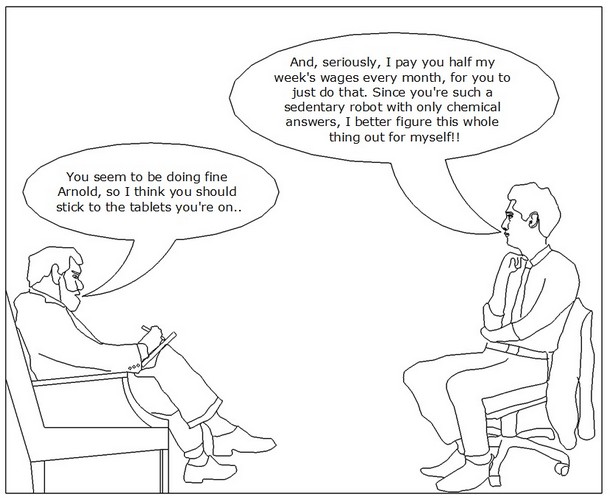
~ Thanks to TAT member Patrick K. for his "Appointment with the Psychiatrist."

 We're hoping to present more humor from TAT members and friends here. Please
your written or graphic creations. Exact sources are necessary for other submissions, since we need to make sure they're either in the public domain or that we have permission to use them.
We're hoping to present more humor from TAT members and friends here. Please
your written or graphic creations. Exact sources are necessary for other submissions, since we need to make sure they're either in the public domain or that we have permission to use them.

Inspiration & Irritation
Irritation moves us; inspiration provides a direction
|
Bertrand Russell on What Makes a Fulfilling Life
This article by Maria Popova in Brain Pickings also includes related thoughts by playwright Henry Miller, philosopher and comedian Emily Levine, and Nobel laureate André Gide.
|

|
There is no river at all, and no boat, and no boatman.
And there is no body, and no mind!
Be strong then, and enter into your own body;
Kabir says this: just throw away all thoughts of
imaginary things, * ~ From The Kabir Book: Forty Four of the Ecstatic Poems of Kabir, translation by Robert Bly. Image above is of an 1825 painting depicting Kabir (1440-1518) with a disciple, weaving. |

|
* The immensely famous pop-singer says things like:
~ From Bob Cergol, an active TAT member and early student of Richard Rose. See Bob's writings in the TAT Forum archive. |

|
|

Please
your thoughts on the above items.

Reader Commentary
Encouraging interactive readership among TAT members and friends
|
A reader wrote that what would make the Forum more interesting would be: Hearing from people who are searching – and have questions instead of those providing endless advice and "answers." What challenges they are facing. What their doubts and questions are. How they perceive their path is going. What they are doing in their lives. Where they think they will end up. Etc. etc. Can you help make the Forum more interesting? |
 The pair of questions we asked readers for this month's Reader Commentary:
The pair of questions we asked readers for this month's Reader Commentary:
If you were going to simplify your life, what would you do first? What do you need to subtract NOW?
Thanks to two TAT members for these related questions. Responses follow.
 From Patrick K:
From Patrick K:
A friend of mine recently said that all of the thinking that gets us caught up in a cycle of suffering is thoughts about others. So I am starting to look at this myself, and I find it is true. Somehow it got me thinking about the "double bind theory" developed by Gregory Bateson. It comes down to how we communicate with others and how we react when others communicate with us. You may say the content, "I love you", but your tone of voice may be controlling, implied in the tone of your voice may be, "and you better love me back". This is an example of the conflicting messages of the double bind. But I look at it and there is much more in the double bind that opens up for me. I interpret from my interactions with others that I am lame or boring, and to get along with those people I feel I have to be more confident and out there. A common saying by teachers discussing this theory is, "damned if you don't and damned if you do". Life is set up full of double binds like this when you look at it. So to simplify my life right now is to not be tied up in any more double binds, reacting, projecting. It may echo Richard Rose's theory, "the paradoxical immanence of all things relative". This is something I need to learn about more to be honest. And it does come down to "intention". If you are caught up in a frustrating double bind, a simple way to get out of it unscathed is to ask yourself the question, "What is my intention here with this?" That should release you from your temporary hypnosis. So this is my exercise now to watch where I am biting my own tail, living out a reaction.
 From James S:
From James S:
The first thing I would do in order to simplify my life is loosen my
sense of being the one in control of everything in my life. When I
experience uncomfortable feelings, I desire the power and certainty
that this sense of control can give me. However, thinking I am the one
in control ultimately complicates my life by closing myself off from
the shared experience of existence. My mind thinks it knows something
that just isn't so, which causes me to make mistakes that I don't
recognize as mistakes. And so the pattern repeats. It is not easy for
me to loosen my sense of control, but by living gratefully and
trusting in others I can learn to simplify my life.
 From William Y:
From William Y:
In four separate sittings, I sat and played with the words that came to mind, in the general direction of preparing a response for the September TAT Forum question. The last sitting, of yesterday, began by running through the previous writings, which were abandoned, after not writing themselves to a conclusion.
I was moved by a book, from many years past, titled Voluntary Simplicity, and all these years later, I am grateful for understandings that may well have been rooted in those words, more than twenty-five years ago. "Enough" and "contented" are two words I consider important when I think about explaining how simplicity works in my experiences.
I titled this essay start "Don't Save" after deleting the last "Word.Doc," which was directed towards this same question posed by the Forum Editor. My grand-father gave me some advice that was primarily about decisions regarding money. He said: "Think of the worst case scenario a while; consider if you can live with or recover from that before deciding something important…."
Today, I do a self-inquiry, and ask: "Is there an attachment to an outcome here, and/or will the energies put towards this endeavor move me closer to "contentedness," or the state of being "enough?"
I am not seeking for anything that isn't already available, nor believing that I have anything to offer others, except my romantic partner, who does continue to struggle with the idea that she need be something more, or do something further, to reach or inhabit that simplistic state of enough(ness).
Equanimity is a word that also aligns with simplicity while also having some further depth which my active mind can play with. Simply paying notice to—feeling—the depth and volume of my breathing, and being curious as to all streams of conscious contact (five senses) as it is, is as simple (and beautiful) as it gets.
 From Chelo T:
From Chelo T:
During the last decade what has helped me most to expand my being and let go of my grip on "stuff" has been an intentional transforming of my mind-set, which has allowed me to increasingly rest in the spacious, expansive openness of consciousness.
So many times when I asked the Q "who am I" and didn't get a concrete answer, either because I was told I shouldn't expect one, or because a deeper knowing kind of answered it. So, I decided to establish a re-conditioning of my mind-set. I said to myself: "I will put my mind to work to free myself from fear and desire once and for all!"
And so, in my daily living, I have been slowly changing the way in which my lifetime conditioning operates. I have some specific questions, some kind of mantras, you could say, that I repeat to myself in different situations. If I feel like wanting to know what is going on with someone, or with a given development of a situation, I ask myself: "Who wants to know?" or "Whose business is that"? I know it is the "me," the "ego," the entangled one in daily stuff who wants to know. Not my deeper Self, of course. So, I immediately realize this and practice to stop my desire to go there. Once I say to myself: "The I am is definitively not the one who wants to know this or that." And I quiet my mind before asking any further question; I quiet my desire to comment.
The same goes for most of my psychological conditioning, the "stuff" that makes me feel like I am right or I need to prove that I know more or know better. "Who wants to prove that?" Or when I react emotionally to some situation, "Who's reacting?" Not my deeper self, of course. This is the way the I am is revealing itself more and more each day. It is becoming increasingly aligned with this expansiveness, because I no longer look to stuff for fulfillment but long to deepen my connection with this expansiveness.
I've come to know that fighting stuff, getting more or less stuff, rearranging stuff, does not free me from stuff. Instead, looking within, especially through my "mantras," feeling within, I have discovered another way of living in this world, a simple way, one that does not depend on this world…of stuff.
 From "Mr. Nobody" (who suggested the 2nd part of the composite question):
From "Mr. Nobody" (who suggested the 2nd part of the composite question):
I was thinking along the lines of Richard Rose's recommendations—to get your house in order and do an honest inventory of what are your distractions from and impediments to establishing a vector. It seems that this has been useful for me in two respects. Probably the most vivid example was the painful decision to sell the farm (with all the equipment and tools) that we loved so much. I had to recognize that it was then draining too much mental, emotional, and physical energy. In a different respect, doing this kind of inventory or self-examination led to the realization that I am responsible for adding on all of the myriads of things in this phenomenal life that result in me being "too busy" and don't support my vector. Although I have improved in saying no to myself and others, I have a long way to go. What about NOW? Resign from committees here.
 From Dan G:
From Dan G:
I'm curious to see what others write. I don't plan to subtract anything "NOW," at least I hope I don't need to.
Though I have been thinking about Douglas Harding's "8x8-fold Plebeian Path" recently. I wish I could remove row 4, column 6, and replace it with a simpler row 4, column 7—subtract the adult's stance on rich and poor: "Greedy, I grasp at bits of my heritage," and replace it with the adult beheaded's: "I venture out to claim my heritage."
I know I'm grasping at bits, and I sense truth in a sentiment that everything is already perfect. It would be simpler to look for perfection if it's true than to seek it in a way I know will certainly fail.
|
A pair of Reader Commentary questions, from TAT friend Sofia, for the October Forum: (How) do you discuss your search with your loved ones? If you don't speak to them about it, why not? Please your responses by the 25th of September and indicate your preferred identification (the default is your first name and the initial letter of your last name). |
 Other Reader Feedback
Other Reader Feedback
 From Lauren T:
From Lauren T:
With so many people telling us that they know the Truth about, "Waking up", how do
We know what really is the Truth.
Some say the real problem is realizing that there is not an "I" to know this.
But this still does not help.
Where do you go for answers, what do you use as a compass to decide where to go next?
My heart, body and intuition give me answers. Maybe there is too much ego here but
For the time being, this is what is happening.
*
I recently met with a group of my graduated students for a long
Visit. It seemed like I did a lot of talking happily sharing my opinions,
Beliefs and stories.
After our visit, I was mortified to realize how much Selfing took place.
I started to beat myself up and then remembered that I am just
human and this thought brought up such a sense of relief.
At this point, it was nice to realize that just resting in my humanness
Is enough.

Q:
What are your thoughts on this month's reader commentary? Please
your feedback.

 Richard Rose described a spiritual path as living one's life
aimed at finding the meaning of that life.
Did you find anything relevant to your life or search in this month's TAT Forum?
Richard Rose described a spiritual path as living one's life
aimed at finding the meaning of that life.
Did you find anything relevant to your life or search in this month's TAT Forum?
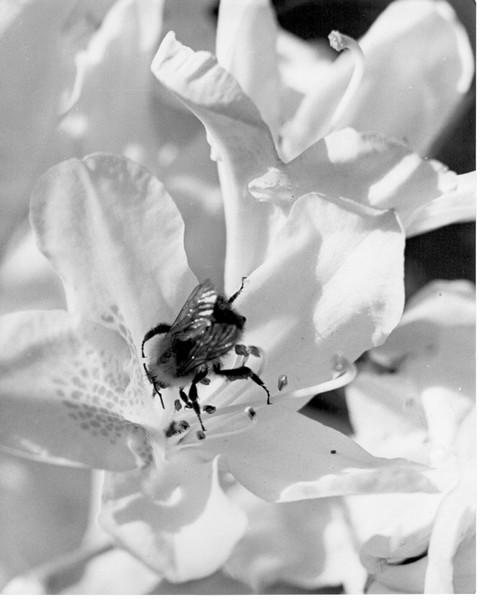
Bumble Bee Bait. Photo © Bob Cergol.

We like hearing from you! Please
your comments, suggestions, inquiries, and submissions.
 Sign up for notices of TAT's four annual events and free
monthly Forums by email on our .
Sign up for notices of TAT's four annual events and free
monthly Forums by email on our .

Founder's Wisdom
Richard Rose (1917-2005) established the TAT Foundation
in 1973 to encourage people to work together on what
he considered to be the "grand project" of spiritual work.
What Is the Truth?
Part 2 of 2 (part 1)
Categories of questioners from part 1:
- The illiterate and non-contemplative man.
- The literate but emotional man, perhaps a man of artistic temperament, of keen appreciation but one who has a disdain for logical encounters.
- The literate but fanatic man who does not know but believes he knows, – who has a closed mind.
- The literate but diffident man. The man who is willing to ask and listen but does not expect much.
- The logician. The man who will belabor the teacher for buttons to push, and for formulae that must be orderly if not mathematical.
- The arm chair philosopher, – who plays mind-games for the sake of ego.
- The serious student who honestly admits his emptiness despite long periods of examination of philosophic questions. This man can be in any walk of life, or in any religion or discipline.

In returning to the categories of questioners, it seems that the only hope for a teacher to approach the mind of either the first or second categories would be an appeal to the person's emotional center. And perhaps for the teacher to touch the minds of the men in categories three, five, and six, some sort of attack is necessary, if the answerer or teacher thinks it is worth while. An alternative would be for the teacher to ignore them until the questioners deemed it worth while.
Categories four and seven are men with a chance at least, to join with the teacher in searching for the answer to the question "What is Truth?"—for which there seems really to be no answer.
The search requires a desire to know. And the searcher must evaluate the knower, or pretended knower, so that he may accept or look elsewhere. However in this matter of choosing, often a teacher knows but cannot communicate, and the pretender does not know, but is able to communicate messages from reading or listening to people who know. The value of listening to such a pretender is questionable, but I am sure that the first and perhaps second wave of teachers that the seeker encounters are pretenders or poseurs.
Some of the pretenders are honest, and their qualifications are more likely to be endowed by the readers and followers because of their intuitional acceptance of the material reported by a scholar who is skillful with words, and who is perhaps also convinced beyond a shadow of a doubt that there is a virtue of leading people into the enthusiasm of the search with talented rhetoric. Paul Brunton wrote a book called A Search in Secret India which was an actual account of a search for Truth, and which inspired me in my early years of searching for spiritual authorities. Brunton did not lay claim to being a knower of Absolute Truth, but wrote as though he were a searcher who had encountered some top men, or sages. In the course of the book he invoked suspense and a bit of the sensational to describe how he had met the sage, Ramana Maharshi, and how he became convinced that the sage had the final answer. Brunton wrote more books of a deeper nature later, in which he admitted that he had paid too much attention to Ramana Maharshi. And he went on to give his readers some valuable insights into the working of the mind, and the barriers which the mind of man places between himself and his objective.
In regards to pretenders, the Westerner, in his first flush of adventure into Eastern schools of philosophy or transcendentalism, is apt to be more gullible about authorities of Eastern roots than he ever would be about the claims of Christian prelates. The grass is greener on the other side, and charm comes easy with strangers.
In the West, there are few words to describe states of being. The Christian attitude is that you have one being which is identified with the body so much that the body is buried facing the East so that it will have the right attitude when "judgment day" arrives. In insisting upon this relation of soul and body, it is no surprise that an extremely materialistic theology should evolve, as it now is doing, and that modern psychology which proclaims the body to be the total self,—harmoniously sleeps soundly in the same bed with a new conciliatory Christianity.
In India, while the Christians of old Rome were dying in the arena for an emotional (Love) religion, the Indians were already a thousand years into theological hair-splitting. Kapila and Patanjali left a heritage of theological and cosmic analysis, but they also left behind a path to the supreme Truth, and there is no doubt that they understood the supreme Truth to be synonymous with personal enlightenment,—a state beyond suffering and joy, and hence beyond purgatory, or hell, and beyond a blissful heaven. Christianity externalized a God, and the Buddhist and Samkhya schools looked for the Truth within the man himself. While the Christian theologians catalogued sins, penances and indulgences, the Indians developed a science of the soul which in some respects was very much like a meticulous psychology. We find that the Indians did not talk of kingdoms of heaven, or rewards and punishment for animal conduct, but rather they catalogued the mind and personality, the self and the Self, and the heaven to which they aspired was an Absolute state of consciousness which they meticulously identified as not being body-consciousness. Two outstanding categorizations of mental realization are Kevala Nirvikalpa Samadhi and Sahaja Nirvikalpa Samadhi. When the Westerner first understands the meaning of these two terms, he is capable of reacting zealously to the point where he will think that the sage who explained the terms actually had experienced the states of realization.
In other words the terms may be as old as Kapila, and they evidently predated Buddha, because he joined an ascetic (truth) school and nearly starved himself to death in search of Nirvana by ascetic disciplines. Any well informed teacher of Indian philosophy would be able to "teach" a person about the path to Truth, but the fact that a person is well versed in Indian terminology does not transform him into a possessor of the final Truth which those philosophies describe.
None of this means or proves that Ramana Maharshi was not enlightened. I am only pointing out that Brunton lost interest in him, and probably would not have done so had Brunton been convinced that Ramana knew all that was to be known. And I must make another note in regards to Paul Brunton. In my readings of his works, I have no recollection of any statements by him that laid claim to enlightenment on his part, but I am sure that there exist today as there existed thirty years ago, little groups who look upon Brunton as a sage. An again, he may be, but he has laid little claim to being a guru.
All this is outlined to show a person (myself included) can be charmed by well-written reporting into believing that the characters in the report were of the quality of diamonds discovered. Brunton, despite the projections of his readers, was a valuable source of information, but even more so, he became a living inspiration, and through him, Ramana Maharshi became a living inspiration for hundreds of thousands who otherwise would not have gone any further in the search for Reality.
We come now to the question, "Was Ramana's teacher an enlightened man, or did he too recite from the teachings of a predecessor?" We do not need to look in India to discover that most priests, ministers or spiritual evangelists have more faith than fact, and most do not deny that they do not know, and quickly admit that theirs is the business of perpetuating faith, rather than a science.
Each of us, with our separate concept of values, has to decide for himself.

Homing Ground Update… A spot on earth where people can do retreats and hold
|
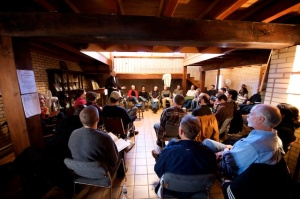
Did you enjoy the Forum? Then buy the book!
Beyond Mind, Beyond Death is available at Amazon.com.




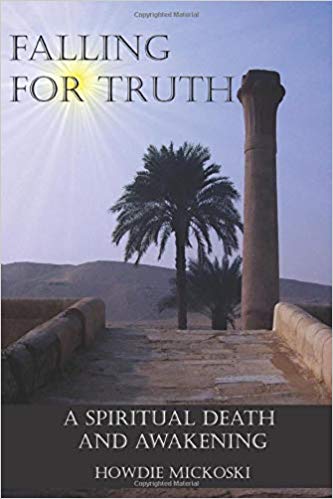 TAT Press's latest publication....
TAT Press's latest publication....
 A new self-inquiry group is forming in Carlow, Ireland.
~ Contact
for more information.
A new self-inquiry group is forming in Carlow, Ireland.
~ Contact
for more information.

